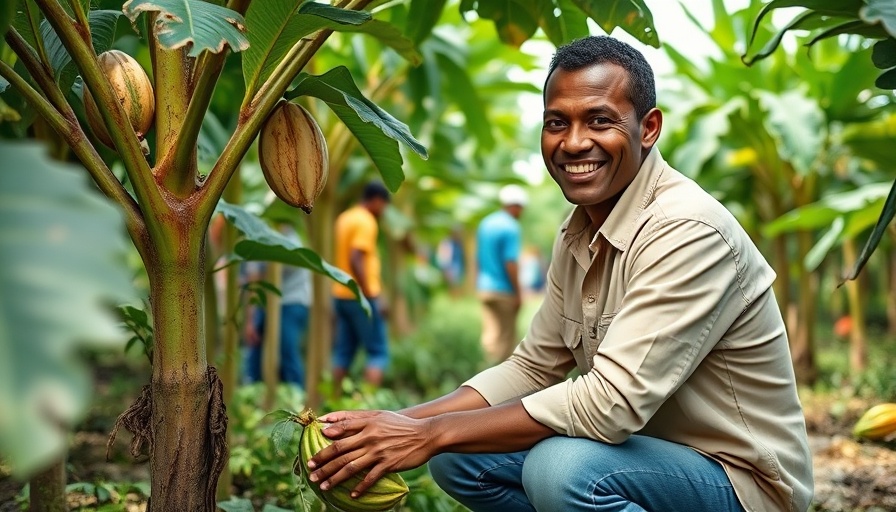
Crisis Communication: A Lesson from the Cocoa Farmers' Revolt
The recent uprising among cocoa farmers in Ghana serves as a striking example of how essential effective crisis communication can be for any organization. The farmers, whose livelihoods heavily rely on the cocoa export market, expressed their frustrations over inadequate compensation and harsh working conditions. This revolt wasn't just an isolated incident; it resonated deeply with other communities facing similar challenges and sparked a conversation about agricultural reform and corporate responsibility in the global cocoa industry.
The Power of Community
For many of us, the cocoa industry may seem distant, yet it thrives at the heart of community economies across regions in Ghana. When the farmers stood up to voice their concerns, they were advocating not just for themselves but for an entire industry and the families that depend on it. The collective action of these farmers emphasizes the strength found in unity and community support. As they rallied together in this revolt, they fostered a sense of solidarity that can inspire other grassroots initiatives.
Understanding the Stakes: Why This Matters
The plight of cocoa farmers highlights the stark realities of global trade dynamics and the ethics behind sourcing practices. Cocoa is often associated with luxury products like chocolate, which are marketed with an appealing narrative, yet the story behind its production is often overlooked. By shedding light on the realities faced by these farmers, we gain a crucial understanding of the ethical implications tied to consumer choices, reinforcing the notion that social responsibility should be integrated into every business model.
Future Trends: Opportunities for Change
As we look forward, there are valuable opportunities for reform stemming from this upheaval. Companies may be prompted to reevaluate their supply chain practices and engage in more equitable trade agreements. Consumers are becoming increasingly aware and concerned about ethically sourced products. This revolt puts pressure on brands to ensure fair treatment of farmers, ultimately leading to balanced trade relationships and sustainable practices that could transform the cocoa industry for the better.
Creating a Narrative for Change
The conversation stirred by the cocoa farmers' revolt opens up new avenues for narrative building. How brands communicate their commitment to supporting farmer welfare can significantly affect public perception and consumer trust. It becomes a storytelling opportunity for businesses to showcase their dedication to social equity and environmental stewardship. Recognizing these farmers not as mere suppliers but as vital stakeholders in the narrative can enrich a brand's message and inspire customer loyalty.
Actionable Insights: What Can You Do?
This situation calls for action, not just from corporations, but from consumers as well. By choosing to support brands that prioritize ethical sourcing and transparency, you can make an impact. It is crucial to educate ourselves about the products we consume and advocate for those who contribute to their production. Join discussions, share insights, and promote awareness around ethical practices in the cocoa industry and beyond.
Get Your Brand Voice Interview
In the age of social media and instant communication, brand messaging must align with ethical practices and community values. Take action today by scheduling your Brand Voice interview. This is your opportunity to explore how your brand can genuinely resonate with your audience while making a positive impact in the community.
 Add Row
Add Row  Add
Add 




Write A Comment